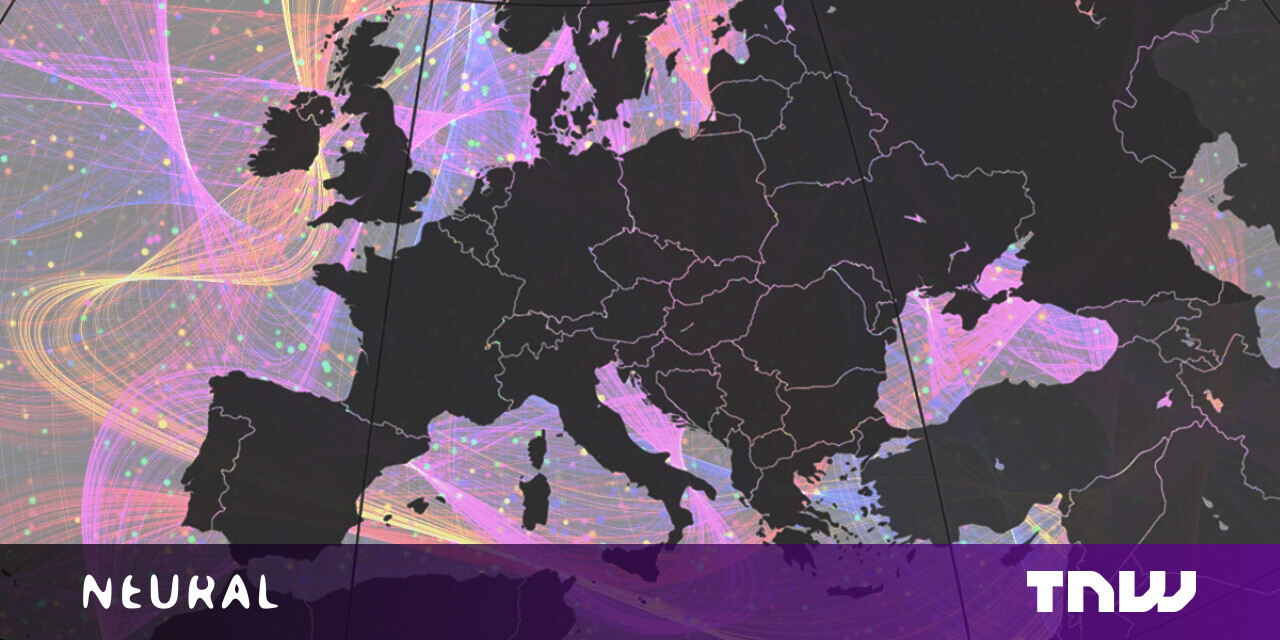#Europe’s quantum sector is poised for massive growth

Table of Contents
“Europe’s quantum sector is poised for massive growth”
In order to understand Europe’s position in the global quantum computing market we need to roll the clock back a couple years. Investors and entrepreneurs began flocking to quantum during the COVID-19 tech boom and, despite the expected post-pandemic drop off, analysts are predicting a massive increase in market size over the next 5-15 years. However, that optimism is somewhat tempered by the fact that quantum computing is a technology that’s still in its infancy.
Some scientists believe quantum computers will never be as useful as the companies building them hope. Still others fear developmental delays could lead to a “quantum winter” where investments and research funding freeze up and cause the field to stall. Luckily, those views appear to be in the minority.
Industry analysis and peer-reviewed research largely demonstrate that quantum computing is on the verge of having a breakout in Europe similar to the deep learning explosion that started in 2014. And it currently shows no sign of slowing.
This shouldn’t come as shocking news to anyone. Europe’s where quantum was born. This isn’t a new technology that’s being imported. It’s the continuation of more than a century of work that, essentially, began in Germany.
The first quantum revolution started when German scientist Max Planck published his seminal study on “blackbody radiation” in December of 1900. A few years later, Planck would assist a young Albert Einstein in refining the theory of relativity that would eventually become part of the bedrock of our understanding of physics today. Simply put: without European scientists, there would be no quantum computing industry to speak of.
Today, that industry is worth somewhere around €500 million. The comprehensive view, for the EU and UK, involves state funding from nearly every country in Europe, participation from hundreds of academic institutions, and the founding of more than 69 quantum computing-focused startups. But before we dive into those companies and institutions, it’s important to understand why they’re invested in quantum computing.

What’s so special about quantum computing?
The basis for the optimism surrounding the field involves a concept called “quantum advantage.” The technology is expected to reach a point of development where quantum computers are capable of performing computations and running algorithms that classical computers either cannot or cannot run within a feasible amount of time. Currently, “quantum advantage” is a somewhat nebulous term. Quantum computing is in its infancy and there’s no agreed-upon benchmark by which one type of quantum computer can be compared to another, or to a classical supercomputer.
Because of the way quantum computers function, you can’t just measure clock speed or CPU performance to determine which system is better. Researchers typically run incredibly complex algorithms on computer systems in order to compare their upper abilities. However, these algorithms aren’t typically useful for anything other than providing hard-to-solve problems for computers.
Eventually, quantum computers are predicted to demonstrate clear advantage over classical computers in the execution of more than just complex puzzle-like algorithms. It’s at this point that early-entry investors and startups might begin to see a return on their investment.
What this means for Europe is that there’s no way to rush to market when it comes to quantum technology. There are certainly ancillary endeavors in the quantum technologies space, such as quantum programming and algorithm development, that could potentially get ahead of hardware in the market, but the development of useful quantum computers currently involves a global effort.
This should forestall any immediate fears of a quantum winter — a period in which entrepreneurship and investment in quantum technologies freezes — while researchers around the world work to improve the current generation of rudimentary systems.
As to whether that translates into ROI for the VCs and entrepreneurs is, however, an entirely different question.
Boots on the ground
There are dozens of European startups focused on quantum computing. One report put the exact number at 69 in 2020, and we’ve seen several new companies formed since. We’d love to profile them all but, in order to keep this article at a readable word count, we’ve narrowed the focus down to three movers and shakers in the space.
#1: IQM
IQM is an Aalto University and VTT Finland spinout that builds quantum computers and what they refer to as “co-designed” quantum systems built for specific industrial applications. With its bespoke superconducting quantum processors, proprietary chipsets, and novel software and algorithm solutions, it’s one of Europe’s leading quantum computing startups.

The systems IQM builds are full stack quantum computers that are designed to be implemented on-site for customer applications. Where IBM, Intel, Google, and other research outfits are building quantum systems for use in cloud-based research and B2B applications, IQM’s systems are built where the customers live. For this reason, IQM services a decidedly research-focused market.
In July of 2022, IQM was awarded €120 million in funding by World Fund for the purpose of using quantum computing to fight the climate crisis. According to Dr. Jan Goetz, CEO and co-founder of IQM, “This funding underscores the importance of our mission: building quantum computers for the well-being of humankind.”
#2: Pasqal
The next stop on our tour of Europe’s quantum computing scene is France where Institut d’Optique spinout Pasqal builds quantum processing units (QPUs) out of atomic arrays. One of the company’s goals is to build hybrid quantum systems that leverage their QPUs for advanced quantum simulations.
Pasqal’s systems are different from the superconducting and gate-based systems being created in labs such as Google’s and IQM’s. They use atomic arrays in what’s called a “neutral atom architecture.” Essentially the company uses lasers and a tool called “atomic tweezers” to trap individual atoms for the purpose of modulating them. This allows its scientists to employ the trapped atoms as qubits for the purpose of quantum computation.
According to the company, Pasqal’s raised €40 million in funding. As to how that money’s being spent, the company just opened up another lab in Canada where it plans to bring its European technology to the North American market.

#3: Oxford Quantum Circuits
You might be able to guess which university OQC spun out of. It builds superconducting quantum circuits that boast the company’s unique “Coaxmon.” This patented invention lies at the heart of the company’s quantum-as-a-service products, including “Lucy,” the first European quantum computing system on Amazon’s AWS.
Back in 2017 Oxford researchers published groundbreaking research on what they referred to as a “coaxial circuit QED architecture in which qubit and resonator are fabricated on opposing sides of a single chip, and control and readout wiring are provided by coaxial wiring running perpendicular to the chip plane.” That same month, OQC was founded.
It’s now five years later, and OQC just closed a series-A funding round with a €38 million investment from Lansdowne Partners and The University of Tokyo Edge Capital Partners. The company will use the funding to expand into the Asian Pacific market and increase its internal R&D budget.

Europe’s quantum future
Industry analysts predict the quantum computing market will swell to nearly six times its current size — that’s a cap of over €3 billion. And, if the startups mentioned above are any indication, we can be sure that at least some European companies will be getting their piece of the pie. If the current outlook holds, there’s no better time than right now for funders and fundees to jump into the quantum sector (provided, of course, you’ve got the physics chops and an idea worth funding).
However, there are a couple of challenges ahead for both entrepreneurs and investors that simply cannot be overlooked. First up, experts have identified both an education deficit and brain drain (AKA: talent export) as key problems for the global quantum sector. And, secondly, there are no guarantees in science or technology.
In addressing the first issue, Europe has a leg up over the US and other competitors when it comes to producing master’s and PhD-level physicists. Denmark, for example, produces the most per capita physicists of any nation, with an astounding 635 grads per million citizens. However, what it makes up for in academia it arguably loses in post-graduate brain drain to Silicon Valley and big tech. This even extends to investments where, according to experts, some 25% of all European funding for quantum technologies is invested in non-European companies.
As for there being no guarantees in science, it’s important to reiterate that quantum computing is still in its infancy. Scientists have demonstrated the technology works but, to date, there aren’t any truly useful quantum computers. We can be all but certain that quantum computers will mature to a point of usefulness. But there’s no telling exactly how useful they’ll be — especially if you try to measure it through ROI.
That being said, the current investment trends coupled with expert industry analysis seems to indicate that today’s crop of European quantum computing startups are just the pioneering vanguard of an industry that could eventually become a backbone technology as ubiquitous as AI.
If you liked the article, do not forget to share it with your friends. Follow us on Google News too, click on the star and choose us from your favorites.
For forums sites go to Forum.BuradaBiliyorum.Com
If you want to read more like this article, you can visit our Technology category.




